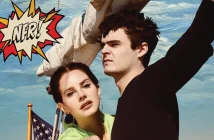Whatever you think of Mad Max: Fury Road (2015), the harshest critics and the most passionate fans are united in one thing: they often point to the fact that it’s about a road to defend their case. For some, the simplicity of the narrative structure allows George Miller to maintain such intense emotional claustrophobia, yet to others it adds only to the monotony of its colourful, but meaningless, pandemonium. But the commercial and critical success of Fury Road unveils a notion seemingly prevalent throughout human history: that our lives can be defined – and redefined – by our journeys.
Let’s briefly jump back 3000 years, and have a quick look at Homer’s epic poetry. In the Iliad, we see the final weeks of the Trojan War and the siege of Troy by the Greek forces. After 10 years of fighting, the battle has finally been won, and the good guys are victorious. What more is there to say? Well, quite simply, their troubles aren’t over. The spotlight is handed over in The Odyssey to one man, Odysseus, who has to deal with the aftermath of the war, constantly blown off course as he sails back, fighting off mystical creatures and avoiding the wrath of the Gods, all-the-while his marriage and political power are under threat back at home. Why, however, is this poem as famous as – if not more so than – its predecessor?
I would argue that Homer hung onto that fundamental realisation that we have to deal with the repercussions of those big moments we think our lives are about. Road stories, in a broader sense, show that there is danger to be found at every second and significance in every moment.
Perhaps this is why the history of American cinema is marked by this fascination with travelling: Terrence Malick debuted as a director with Badlands (1973), Jim Jarmusch’s unique, placid voice found notoriety with Stranger than Paradise (1984), and German director Wim Wenders first brought his crew to America with Paris, Texas (1985). Even Steven Spielberg’s first full-length film was Duel (1971). Each of these directors, in one sense or another, showed us through their stories about travelling that life isn’t over when we’re not saving the world, meeting the person of our dreams, or making contact with alien civilisations. No, there is as much a story to be found in the car, on the road, as we continue on our journeys through life.
Of course, the Mad Max films are hardly mundane, but the simplicity of their structures still allow Miller to insert heightened significance and tension in every second. In Fury Road, the sparsity of the open world only intensifies the confinement of Furiosa’s hope in searching for the Green Place; the freedom mocks the road’s restraints. Even the world of the franchise is one created by a nuclear holocaust; the narrative follows the social fallout of an unseen world-defining event, seemingly uninteresting in the cause or origin of the war.
This, as such, is why I believe road stories are often associated with the summer: we have reached the climax of the year’s work with our exams and deadlines, and are often faced with the open deadness of the summer ahead. And so, naturally, we want to feel that every moment – even the ‘inbetween’s, the ‘to’ in our ‘A to B’s – can have significance as well. Road stories, simply, and throughout the history of Western culture, continue showing us new ways of seeing this ancient truth.



